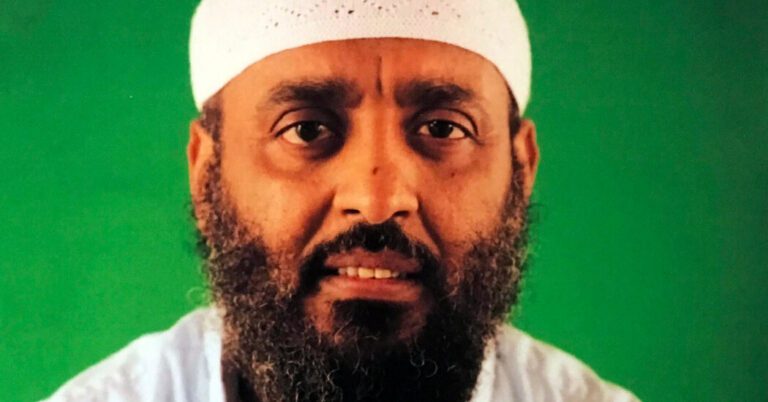
[ad_1]
A military medical board has concluded that Ramzi bin al-Shibh, who is accused of conspiring in the Sept. 11 attacks, has a mental illness that makes him incompetent to either face trial or plead guilty in the death penalty case, according to a report filed with his trial judge on Friday.
The finding is the latest setback to prosecution efforts to bring the long-running capital cases at Guantánamo Bay to trial. Last week, a military judge threw out the confession of a man accused of plotting the U.S.S. Cole bombing, Guantánamo’s other capital case, as contaminated by his torture by the C.I.A.
The question of Mr. bin al-Shibh’s sanity, and capacity to help his lawyers defend him, has shadowed the Sept. 11 conspiracy case since his first court appearance in 2008. Then, a military lawyer disclosed that her client was restrained with ankle shackles and that the prison had him medicated with psychotropic drugs. He has disrupted pretrial hearings over the years with outbursts, and in court and in filings complained that the C.I.A. torments him with noises, vibrations and other techniques to deprive of him sleep.
It was unclear whether the prisoner was allowed to see the report, which was filed under seal on Friday; for years he has resisted the idea that he has a mental illness and should be severed from the joint trial with the man accused of being the mastermind of the Sept. 11 attacks, Khalid Shaikh Mohammed, and three other defendants. The five men are accused of conspiring in the plane hijackings in 2001 that killed nearly 3,000 people in New York City, at the Pentagon and in Pennsylvania.
Now it is up to the judge, Col. Matthew N. McCall, to decide whether to remove Mr. bin al-Shibh from the case and proceed with a four-man prosecution — or to postpone proceedings pending treatment. Colonel McCall has scheduled hearings on the topic for the week of Sept. 18 at Guantánamo Bay.
One issue will be whether prosecutors challenge the finding and seek testimony from the board members and other experts about how he might be treated with the limited health care available at the detention center of 30 prisoners at Guantánamo Bay.
Mr. bin al-Shibh’s lawyer, David I. Bruck, who was reached at Guantánamo Bay on Friday, declined to discuss or comment on the report.
Friday’s report was the result of an order from the judge in April for three mental health experts to investigate whether Mr. bin al-Shibh “is suffering from a mental disease or defect that renders him mentally incompetent to stand trial.” Prosecutors filed it under seal.
But three people who saw the report, and spoke on condition of anonymity because it has not been released, said he was found not competent. One person who read it said the panel diagnosed him with post-traumatic stress disorder “with psychotic features.”
Mr. bin al-Shibh is accused of organizing the Hamburg, Germany, cell of Sept. 11 hijackers, including researching flight schools in the United States and wiring money to some of the 19 hijackers in the attack. He also allegedly worked with the cell leader, Mohammed Atta, and reported to leaders of Al Qaeda in Afghanistan that the attack would occur on 9/11.
The medical panel reached its conclusion more than a year after prosecutors invited the defendants in the case to plead guilty in exchange for life in prison, rather than risk the possibility of a death sentence at trial, by admitting to their roles in hijackings.
The talks, which began in March 2022, have been mostly stalled awaiting an answer from the Biden administration on whether it will provide several assurances including that, as convicts, the men will not be held in solitary confinement.
But prosecutors noted in recent filings that because Mr. bin al-Shibh was undergoing the competency exam, he was excluded from the talks.
It is not clear what military medical staff at the prison can do to restore his competency. Among other things, the defendants want assurances as part of the plea deal that the prison will establish a civilian-run trauma care program for them.
According to their lawyers, at least four of the defendants have sleep disorders, brain injuries, gastrointestinal damage or other health problems they attribute to the agency’s brutal interrogation methods during their three to four years in C.I.A. custody before their transfer to Guantánamo Bay in 2006.
[ad_2]